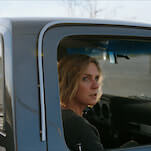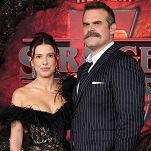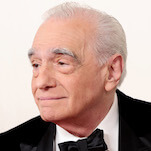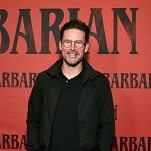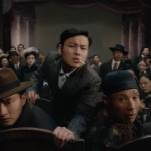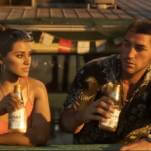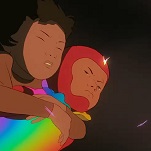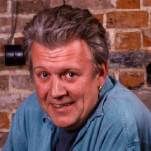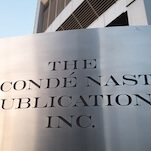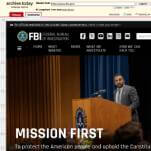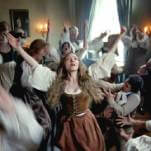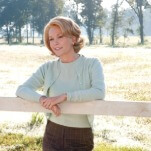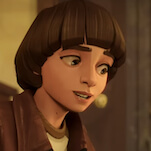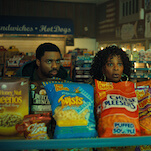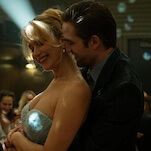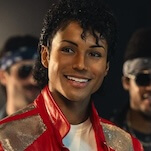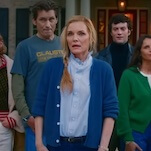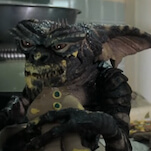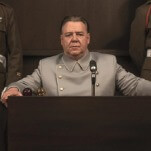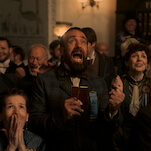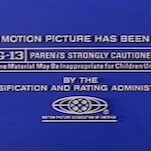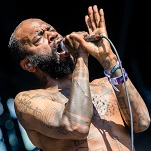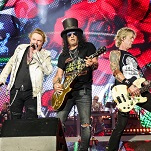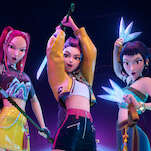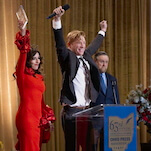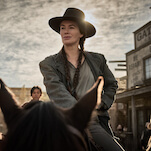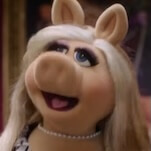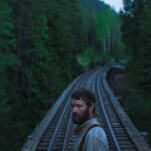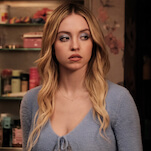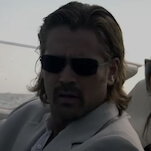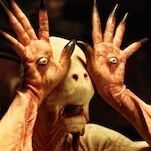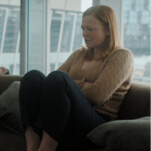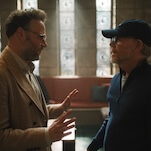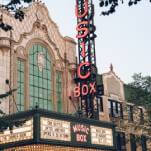“I hated this bloke for being much funnier than me. I wanted him dead.”
“I remember doing that and blushing, thinking that was very unfunny and bad.”
To Lawrence: “Did you ever think about putting airplanes in the background to make it look less like a set? Because I don’t buy that skyline one bit.”
What went wrong: The tone of the commentary is so relentlessly tongue-in-cheek that it’s hard to delineate what actually went wrong from the many things that went fake-wrong. But there are signs that the three weren’t entirely happy with how the film turned out. One scene designed mostly to keep the ridiculous Witness Protection Program plot in motion confuses Grant, who calls it “badly written and badly performed,” and goes on to wonder about its intent. (“I believe Hugh called this scene a plate with steak and ice cream on it,” Parker says. “Yes,” says Grant. “Because what was it meant to be, Marc? Was it meant to be comedy? Was it meant to be straight? What in God’s name was it meant to be?”) Grant later expresses unhappiness about another scene that he hoped would find the cutting-room floor: “Throughout the whole editing process, I begged for this take to be changed, because this is an awful bit of overacting. Look at this. Just embarrassing. But no. And I think the reason you didn’t change it is because I overacted in every take.”
On top of the general problems with the scenes themselves, all three point out gaffes in the physical production itself. Lawrence talks about the enormous expense of digitally altering little details in post-production, like the $20,000 spent because an American flag was hung incorrectly, or a city apartment where a CGI deadbolt had to be added to the door. On a particularly cold New York evening, Lawrence expresses regret for the hypothermia contracted by a stuntman who had to lay “facedown on the pavement for a shot we didn’t use.” Grant also criticizes the director for the “interesting and some would say stupid” idea of shooting most of the film in sequence, “so the early scenes in the film, which really set the tone and are very important, we had to do while we were still absolutely crapping ourselves with nerves.”
Comments on the cast: Lots of good-natured ribbing and random silliness on this front, too. Of Sam Elliott, Grant quips, “I used to take care of Sam’s moustache. He had six. That’s my second-favorite he’s got on now.” Parker notes that Steenburgen was a “terrible giggler” and sometimes spoiled takes by laughing during them, though Lawrence admires her ability to carry two dinner plates on her arm. Grant trades jibes back and forth with Parker, but outpunches her by a wide margin. He pokes fun at her jogging style (“there’s something excessive in your arm movements”), teases her for refusing to fire a rifle in one scene (“You were an irritating actress. There’s no two ways about it”), and peppers her with faux-sexist remarks. (“[Kim Shaw’s] is the second-best bottom in the film, after SJ’s.”) And, of course, Grant saves the nastiest barbs for himself: “I don’t like the faces I make at all… I’m mugging. I’ve mugged my way through the last 16 years of my career. [Parker is] actually thinking thoughts. I’m thinking, ‘When’s my next line and what face can I make?’”
Inevitable dash of pretension: Not even a hint of it. At one point, Lawrence seems ready to offer some high-minded rationale for using clips from The Searchers and Dirty Harry. No dice. They’re just movies on TV.
Commentary in a nutshell: From Grant: “I’m bored with this film now. Can we talk about another one?”
